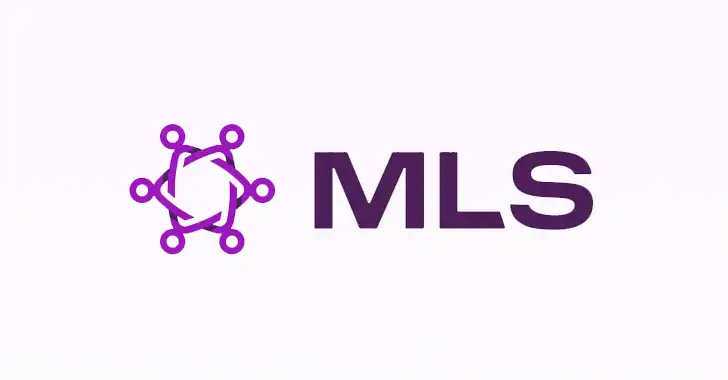The real estate industry has witnessed a technological transformation over the past decade, and at the heart of this shift lies the MLS (Multiple Listing Service) — a data-rich ecosystem central to the buying, selling, and listing of properties. With the rise of third-party applications, data analytics tools, and AI-driven platforms, the role of APIs (Application Programming Interfaces) in MLS systems has become increasingly crucial. However, a fundamental question continues to shape the future of MLS innovation: should these platforms adopt open or closed API policies?
This article explores the key differences between open and closed API policies in MLS platforms, examining their benefits, challenges, and implications for stakeholders including MLS operators, real estate agents, technology developers, and consumers.
Understanding API Policies in MLS
APIs serve as bridges between different software systems, allowing data to be exchanged seamlessly. In the context of MLS platforms, APIs enable integration with customer relationship management (CRM) tools, mobile apps, property search websites, market analysis platforms, and more.
Open API policies refer to systems where external developers and partners can access data and services with minimal restrictions. These platforms usually provide extensive documentation, self-service registration, and standardized access protocols.
Closed API policies, on the other hand, impose tighter controls. Access is typically restricted to approved vendors, limited in functionality, or tightly governed by licensing agreements.
Advantages of Open API Policies
Fostering Innovation
Open APIs can drive rapid innovation by allowing third-party developers to build new tools, features, and services on top of MLS data. This opens up opportunities for startups and established tech firms to enhance the real estate experience through AI, automation, advanced analytics, and more intuitive user interfaces.
For example, a developer might use open APIs to create a home price prediction tool that integrates live MLS data with public demographic or economic data.
Better User Experience
With open APIs, brokerages and agents can choose from a broader range of technology partners. This flexibility allows them to tailor their workflows with tools that better suit their specific needs, improving operational efficiency and customer service.
Ecosystem Growth
An open API approach encourages the development of a larger ecosystem of complementary services. These services, in turn, attract more users to the MLS platform, increasing its overall value and utility.
Challenges of Open API Policies
Data Security and Compliance
Opening up APIs increases the risk of data breaches or misuse. Real estate data includes sensitive information, such as homeowner details and property history, that must be protected in compliance with laws like GDPR or local regulations. MLS providers must invest heavily in monitoring, encryption, and access control.
Loss of Control
With open APIs, the MLS operator relinquishes some control over how its data is used. This could lead to third-party services reformatting or repackaging data in ways that might conflict with branding, quality standards, or user trust.
Monetization Difficulties
In open environments, monetizing data can be challenging. If access is freely given, the MLS must find alternative revenue models — such as tiered API pricing, support fees, or data-enhanced services.
Advantages of Closed API Policies
Greater Control Over Data Use
Closed APIs give MLS organizations tighter oversight over who accesses data and how it’s used. This helps maintain brand consistency, protect proprietary data, and ensure that third-party tools meet certain quality or ethical standards.
Stronger Data Security
By limiting API access to vetted partners, closed systems can reduce the risk of data leaks or violations. They also make it easier to enforce compliance with privacy regulations.
Revenue Protection
Closed policies enable MLS providers to gatekeep premium features or charge licensing fees. This can protect traditional revenue streams, especially in a landscape where access to data is a key value proposition.
Challenges of Closed API Policies
Stifled Innovation
By limiting access, MLS platforms may inadvertently stifle the innovation that drives digital transformation. Developers may be discouraged by complex approval processes or restrictive terms, resulting in fewer integrations and outdated user experiences.
Fragmented Technology Ecosystem
Agents and brokers may be locked into a narrow set of approved vendors, limiting their ability to adopt cutting-edge solutions. This could make MLS systems feel antiquated compared to more modern, open platforms.
Competitive Disadvantage
In a market increasingly shaped by agile tech companies, closed systems may struggle to keep pace with user expectations. Competitors offering open, flexible platforms could lure away brokers seeking more dynamic tools.
Striking a Balance: The Hybrid Model
Given the trade-offs of both approaches, many MLS platforms are exploring hybrid API models — offering a core set of open APIs for general use, while restricting access to sensitive or proprietary data. These models may include:
-
Sandbox environments for testing, with production access granted upon review.
-
Tiered API access based on usage, data type, or user role.
-
Robust authentication and rate limiting to ensure security and fair use.
-
Transparent governance structures to manage disputes and ensure compliance.
This approach allows MLS providers to harness the benefits of openness while preserving the control and integrity of their data.
Key Considerations for MLS Decision-Makers
When designing or revising API policies, MLS organizations should consider the following:
-
Stakeholder needs: What do brokers, agents, developers, and consumers need most?
-
Security and compliance: How will sensitive data be protected?
-
Long-term strategy: Will open access accelerate growth, or undermine stability?
-
Competitive positioning: How do peer platforms handle API access?
A thoughtful API strategy not only addresses technical considerations but also aligns with the MLS’s broader mission and business model.
Conclusion
The choice between open and closed API policies is not merely a technical decision — it’s a strategic one with far-reaching implications for innovation, security, and competitiveness in the real estate industry. While open APIs promise agility and growth, closed APIs offer stability and control. Ultimately, the most successful MLS platforms will be those that craft flexible, secure, and inclusive API ecosystems that serve the evolving needs of their stakeholders.
By embracing a hybrid approach and engaging openly with their developer communities, MLS organizations can unlock the full potential of their data while safeguarding the trust that underpins the real estate market.
Frequently Asked Questions
What are the primary differences between open and closed API policies in MLS platforms?
The main difference lies in access control and data usage permissions.
-
Open API policies provide external developers broad, standardized access to MLS data and services. They often include public documentation, fewer restrictions, and self-service onboarding. The goal is to foster innovation and ecosystem expansion by allowing various tech platforms to integrate easily.
-
Closed API policies are more restrictive, allowing access only to vetted or licensed partners. These APIs may limit available functions, enforce strict usage terms, and often require manual approval. The focus here is on data control, brand protection, and revenue preservation.
How do open APIs promote innovation in the real estate tech ecosystem?
Open APIs allow third-party developers, startups, and technology partners to create new applications, tools, and services on top of MLS data without bureaucratic friction. This encourages:
-
Faster development cycles for features like virtual tours, AI-based pricing tools, or customer-facing apps.
-
Diverse user experiences, enabling brokerages and agents to customize tech stacks.
-
Integration with other sectors, such as financial services, home improvement, or insurance, fostering a holistic real estate experience.
By removing access barriers, open APIs act as catalysts for experimentation and competitive innovation.
What are the key security concerns with open API policies, and how can they be mitigated?
Open APIs expose systems to risks such as:
-
Unauthorized data scraping
-
Improper use or redistribution of sensitive data
-
Compliance violations (e.g., with GDPR or U.S. data privacy laws)
-
Denial-of-service (DoS) attacks from uncontrolled traffic
To mitigate these, MLS platforms should implement:
-
Authentication protocols (e.g., OAuth 2.0)
-
Rate limiting and usage quotas
-
Data anonymization and encryption
-
API monitoring and logging
-
Granular permission models, where certain data types require higher clearance
These technical safeguards enable MLSs to open access without compromising security.













